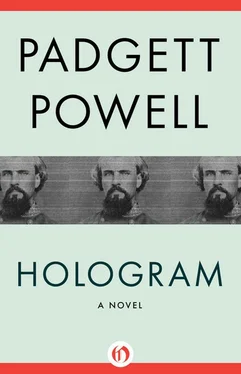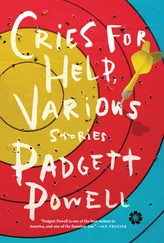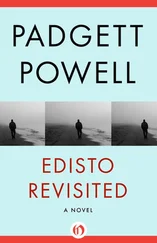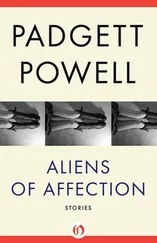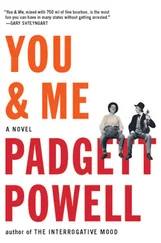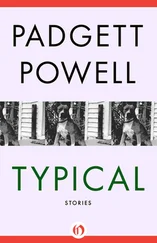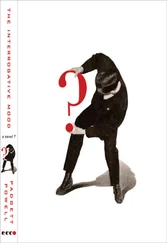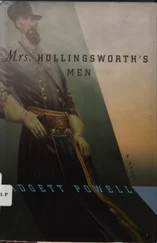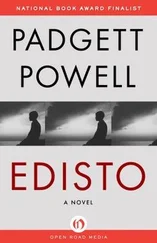Ray closed his eyes. He wanted to see Forrest ride. He almost wanted to run the machine that projected him again himself, because Forrest was not doing interesting things here in this professional film or whatever it was. Forrest could ride, fist, skull, stomp, gouge, pistol ball in hip, mercury pouring from his feet where his thimble spurs melted back onto the fingers of the fair ladies who hoped for him
and loved him and loved then, still, too, themselves
and the woman was on him again, the fog of flesh that was her and that was him was on them again, and she was saying “Are you hungry?” and he was saying “Yes, ma’am, I am hungry,” and she smiled at him, a sweet smile that took a long time and made him feel like … what? … as if she were laughing at something, at him, but she was not, and she said “And are you a fool?” and he said “Oh, yes, ma’am, I am a fool,” and she said “Then you are a hungry fool?” and he said nothing because it was obvious that he was, and the woman smiled again the long smile that made you think she was finding something funny about you but she was not.
WHEN MRS. HOLLINGSWORTH RETURNED from her dinner with Turner and Jane and Ray and the irrepressible unredoubtable Forrest, as fine as an immortal graying hound, she felt marvelously refreshed and simplified. She felt she had traveled to a wonderful place, a sentiment that was suspiciously brochure-sounding but that she had no trouble holding anyway. I went to a place and I enjoyed it very much, she said to herself. Now that she was “back”—and she had some reservations about that terminology too, because she sensed you did not come all the way back and you did not ever really leave, somewhat as with taking acid — she kept smacking her lips for some of that place again.
Here she was again in what her daughters would call, she supposed, the real fog — no, they wouldn’t, they were not that bright — and it looked immeasurably worse. The newspaper contained an item, among all the murders and barricadings and shooting sprees, about the curvature of the president’s member. He had a peyroni that did not, she read, get fully erect. The president of the United States. This was real. Tell her this was not also then a fog, and a worse one than the one she had learned to take lodgment in.
She had got to see a media mogul cry — where else might you see that? And he had wept so ambiguously, so endearingly, so unselfpityingly. She was already ready to go back. A phrase was toying with her head. She had had more of the phrase than she had now, and it had been better, meant more than the fragment of it she now possessed. She had lost part of the phrase in the collision with the real fog. The president’s limber peyroni had whapped it out of her head. Everyone could be Coleridge, she supposed. This was why They had taken laudanum away from us, wasn’t it? They did not like us all being Coleridge. If she were caught selling laudanum from the back of a Volvo, she would do more time than if she shot someone.
What remained of the toying phrase was only this: “in the ghost of her lies.” Something something in the ghost of her lies. Maybe In the ghost of her, lies something something. No: the original meaning was along the lines of the phantom of her prevarications. The phantom of her prevarications, the ghost of her lies — she was in love with the ghost of her lies, her ghostly lies, and she would return to him, and to them, when she could. There was nothing quite like the clarity of the surreal fog when you came out of the muddy real.
For the rest of her life she would shop, for herself and for whatever hungry fools came by to partake of her improbable food. This resolve filled her with so much cheer that she hatted up and headed out to the real store for some probable food. Waked up, part of her vision intact, the ghost of her lies in her purse, she was not altogether in despond. She Volvoed forth into the real fog.
AT THE GROCERY STORE Mrs. Hollingsworth found herself stopped at a long chest freezer containing packaged vegetables and fruits. The handsome simulations of the vegetables and the fruits on the packages drew the eye agreeably to their gay colors through the calming fog of frozen air hovering over them. She stood there, absently handling this and that. She rarely bought any frozen food of this sort, precisely because the packaging was so nice she felt it had to conceal something fraudulent. She was aware that frozen food had passed out of middle-class favor and was now a food of the lower classes. But there was a brand of bulk vegetables from Georgia of the country-people sort — cut green beans and okra and field peas — sold in two-pound undecorated clear plastic bags that she would buy. These vegetables were good, and they interested her because all it said on the bag, virtually, was “Moultrie, Georgia,” as if that would, or should, be enough to sell the food in the bag. And it was. All the other frozen produce, in full-tilt packaging, which she thought of as emanating actually from Hollywood, turned out to be from a subsidiary of a subsidiary of a subsidiary of Coca-Cola or General Motors, in Battle Creek or Stamford or who knew where.
She imagined Forrest riding in here and laying in a plain bag of cut okra for each saddlebag, to pop in his mouth like popcorn all day through a long fight. She actually looked around for him, realizing as she did that she looked exactly like the man on the bed’s grandmother, who would slap children’s hands to protect her pickled tongue, the time she escaped from her nursing home and petered out in the sunny foyer of an apartment building two blocks away, saying to passing strangers whom she mistook to be her rescuers, “What took you so long?” The old children-knife-slapping poker queen mistook each passerby to be a saber-slapping Forrest. Mrs. Hollingsworth had that same desperate lost hopeful look standing there with a bag of okra in her hand. She put it down. Forrest could do a lot, but rescuing her in here was not one of the things he could do.
She beheld, next to the okra she had put down, a box of blueberries. She knew that the box itself was plain, gray, thin cardboard folded together none too sturdily; what shored the affair up was a perdurable waxed paper well sealed around the box, a light unwettable paper as nice as good wrapping paper, and this delicate slippery material held the coarse, loose box of berries together, a kind of intimacy she found sexy. The wrapper was pure white, and on it was printed a prospect of blueberries that looked like no blueberries on earth, or none that anyone on earth had ever seen, at any rate. They were cold-looking and “garden-moist,” the wrapper proclaimed, a remarkable effect given that the blueberries she’d seen had looked like hot purple peppercorns. These Hollywood berries were princely, each with its dainty spiked crown. The photograph did what Van Camp’s or General Motors or AT&T or whoever asked of it: made the human being want to eat blue food, an improbable thing in his general habit.
In the portrait of these surreal blueberries, Mrs. Hollingsworth saw the man on the bed get up from it and look around and see that the impossibly beautiful woman was gone. This perception on his part put a waft of momentary desperation through him, followed hard by a waft of determination to endure the loss of the woman. Sexual deprivation quickens the step, Mrs. Hollingsworth thought, seeing the sentiment penciled over the scene as if it were one in a comic strip. It was a comic strip, she thought then. She had no trouble with that. She herself was comic.
She saw the man put on a crisp new shirt of a plaid fabric so thin it could be seen through. He dropped the tissue and the straight pins from the shirt packaging onto the hard golden floor of the room. It was the first time anything — even Helen of Troy’s clawing through it — had detracted from the stunning perfection of the floor. The momentary carp flowing over it had no more marred it than fish mar water. The pins and the tissue fell to the floor and stayed where they fell, the shiny glints of the pins random and vaguely dangerous, the crumpling of the paper humanly messy. They were harbingers of something, Mrs. Hollingsworth thought. She loved that word. They were harbingers.
Читать дальше
